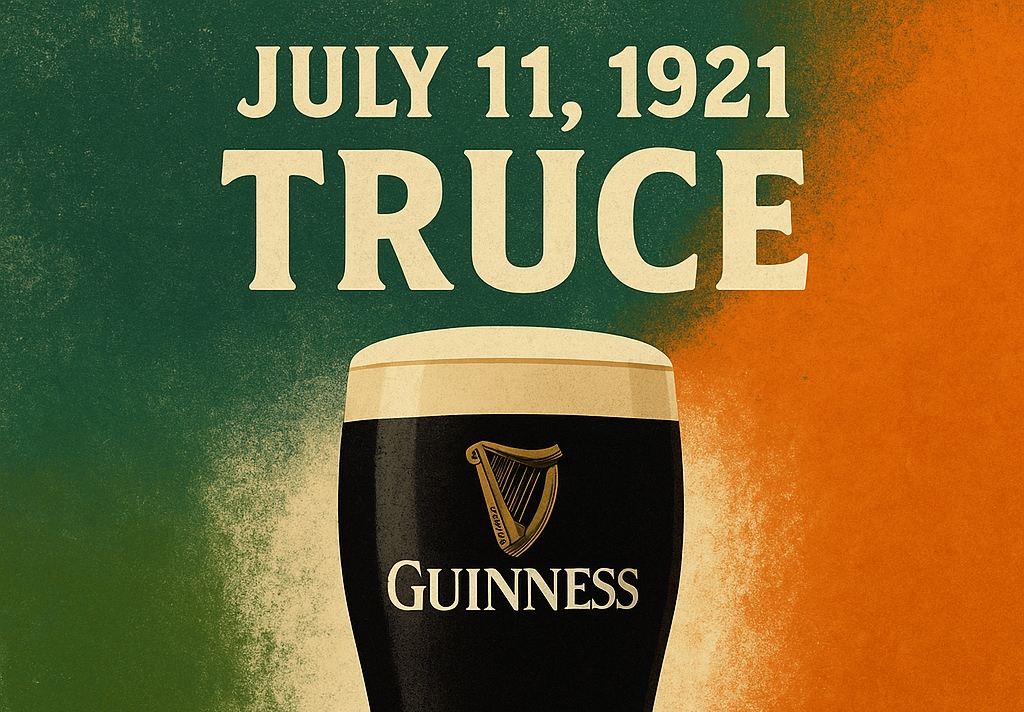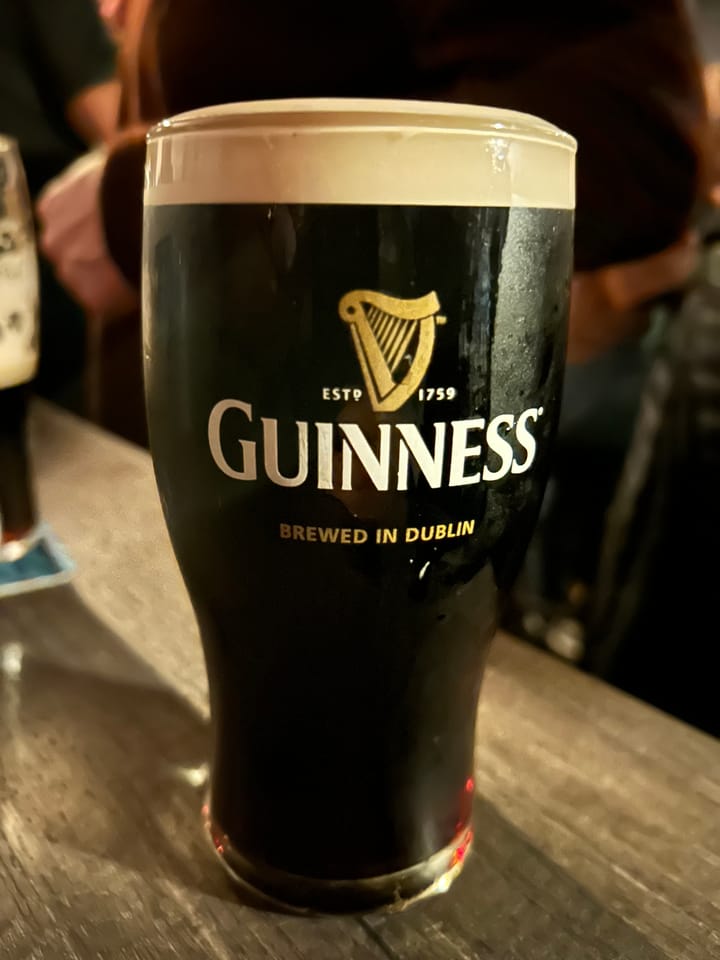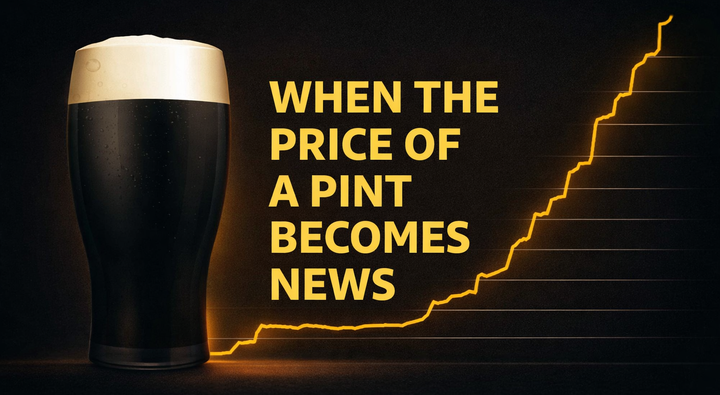A Pint Between Wars: Guinness, Ireland, and the Years In Between
The truce came. The guns fell quiet. But unity was still far off—and the pint was poured anyway.

At noon on July 11, 1921, the fighting stopped—but nothing truly settled. The truce opened a door to the Treaty, the Civil War, and a country split down the middle. In moments like that, Ireland leans on ritual. Somewhere in Dublin, a pint of Guinness was poured—not because it was over, but because it wasn’t.
In Chapter 3 of Pints and Power, I explore how Guinness offered a strange kind of solidarity during that time—not political, not performative, but real:
“Guinness didn’t speak in revolutionary slogans. But it didn’t have to. Its impact was lived, not shouted… It may not have hoisted a tricolor or sounded a marching drum, but the Guinness brand did something radical: it said to the world, ‘This is Irish. And this is excellent.’ No footnote. No apology.”
— Chapter 3, Pints and Power
Somewhere in Dublin that day, someone poured a pint.
Not because it was over—but because it wasn’t.
That’s the power of ritual in Ireland. It helps hold what words can’t.
The bitterness of the Black and Tan War.
The heartbreak of brothers divided.
The long, slow ache of something incomplete.
And still, the pint was raised. Still poured. Still shared.
My friend and historian Davy Holden posted a short but powerful video today telling the story of that day—what it meant, and what followed. I highly recommend watching it. (Link below.)
The truce was not an ending. It was a hinge in history.
And like a pint of Guinness, the meaning settles slowly—over time, in conversation, in memory.
Watch Davy Holden’s historical video post
So raise a pint today and make a toast.
To the quiet moments that began the fight,
To the loud ones that refused to let it die.
To what we’ve gained, and what remains—
May we remember not just the day the guns fell silent,
But the voices that still rise.
Sláinte.






Comments ()